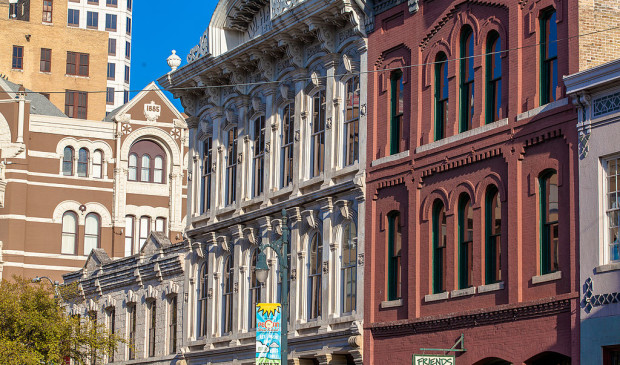City Council talks historic preservation goals
Thursday, August 13, 2015 by
Elizabeth Pagano City Council members found themselves tackling the underpinnings of historic preservation on Tuesday, as they wrestled with whether to proceed with four very different cases of historic landmark designation on today’s agenda.
Ultimately, Council members remained undecided on whether to proceed with decisions on all four cases. They seemed more certain about the need to study Austin’s historic preservation program in the future, however, after Tuesday’s work session illustrated that some members still may be getting up to speed on all of its many nuances.
Council Member Ellen Troxclair launched the discussion, asking the question, “What are we trying to accomplish with historic preservation?”
Troxclair said that she understood the city has an interest in preserving historic properties, but the differences between the four properties up for consideration raised much broader policy questions for her. In particular, she cited concerns about lost tax revenue from the program, which she said amounts to about $1.4 million each year.
Troxclair wondered how long it had been since the city took a look at historic tax exemptions and the amount of abatement currently allowed. She compared the issue to the discussion that took place around the recent approval of a homestead exemption, and worried that some properties appraised at high values were receiving “huge exemptions.”
Development Services manager Jerry Rusthoven noted that the city evaluated the preservation program about three years ago, following a lawsuit over the program. That evaluation, he said, capped city tax abatements at $2,500, not at the 100 percent of structure value and 50 percent of property value that Troxclair feared was the case.
Mayor Steve Adler suggested that, instead of sending the city’s historic preservation program to a subcommittee for a re-evaluation, perhaps Council could receive an orientation on historic preservation.
Though she agreed that an overall look at the city’s historic preservation program would be good, Mayor Pro Tem Kathie Tovo expressed reservations about indefinitely putting decisions about the current crop of zoning changes on hold.
“Changing the rules midstream, for people who are following and participating in a city program that’s been established, I think is not fair,” said Tovo, who urged Council members to move forward with the cases that were already in process under an established city policy.
Troxclair disagreed, saying that the city had yet to make a commitment and that it was completely within Council’s ability to reevaluate the program before doing so.
Other Council members steered clear of the larger discussion and focused on the individual cases currently up for consideration.
Council Member Ann Kitchen took the opportunity to shine a light on her perspective on the proposed historic designation for the Lightsey-Russell House. Its designation is the latest chapter in a protracted battle over the Lightsey 2 development in her district.
“This particular situation speaks towards preserving neighborhood character in a neighborhood that is fast-disappearing. The impact is on a developer who wants to develop the property. The impact would be limited to reducing the amount of houses that developer could put in by somewhere between two and three houses,” said Kitchen.
She continued, “So I think it’s a pretty good accommodation between preserving the neighborhood character, which is essentially gone in that neighborhood, and what the developer’s interest is in bringing them additional infill.”
Because the owner opposed historic zoning on the house, it would take a supermajority of City Council – or nine – to impose the zoning on the house at 1805 Lightsey Road. Developers PSW Real Estate have argued that preservation of the house is a last-ditch effort to thwart the development that has only recently concerned neighborhood opponents. PSW also asserts that changing its plans to accommodate the house will raise the prices of its new homes considerably.
Both Council members Pio Renteria and Ora Houston pointed out that another of today’s cases – the Dedrick-Hamilton House at 912 E. 11th St. – is a commercial, city-owned building of significance to the community that would not receive any tax abatement.
Photo by Kenneth C. Zirkel (Own work) [CC BY-SA 3.0], via Wikimedia Commons
You're a community leader
And we’re honored you look to us for serious, in-depth news. You know a strong community needs local and dedicated watchdog reporting. We’re here for you and that won’t change. Now will you take the powerful next step and support our nonprofit news organization?



